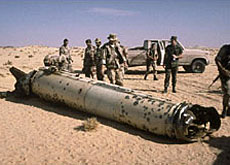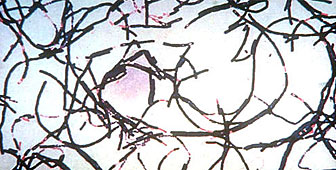Swiss lab gears up for return of weapons inspectors

Swiss experts are on standby to go to Iraq, if and when United Nations weapons inspectors return to the country.
Scientists from the country’s main weapons institute have begun training UN experts and preparing for the arrival of deadly chemicals.
The laboratory, nestling in a field near Spiez between lake Thun and the Bernese Alps, is at the heart of Switzerland’s research and testing programme into nuclear, chemical and biological weapons.
It’s made up of a cluster of concrete buildings, sporting fields and a car park – a scene that would be utterly forgettable were it not for the three unlikely chimneys perched above the complex.
Although over 75 years old, the laboratory first came to international prominence during the Iran-Iraq war as the place where chemical weapons used during the 1984 conflict were first analysed.
Spiez – on the road to Baghdad
Since then, the facility has played an ongoing role in the fight against weapons of mass destruction.
During the 1990s the laboratory developed its reputation through its efforts to help destroy thousands of tonnes of chemical weapons and poisonous waste materials in Russia.
But its global profile has largely centred on the laboratory’s involvement in United Nations inspections of Iraqi weapons programmes.
A number of Spiez-based experts have made dozens of visits to Iraqi facilities prior to 1998, when the country shut its doors to international scrutiny.
Heiner Staub, head of the Spiez Laboratory’s arms control division – who took part in several of those visits as an industrial chemist – believes no one can determine whether the country harbours weapons of mass destruction.
“Nobody really knows except the Iraqi’s themselves,” Staub told swissinfo.
“It was clear during the inspections [of the 1990s] that they misled inspectors or did not give full information,” he said.
In search of smoking guns
Much has been made of Iraq’s refusal to re-admit inspectors – although the country has recently offered to reopen its doors to the UN.
“In my opinion, the way of approaching the problem is not to go back to Iraq and run around trying to find smoking guns,” Staub says.
“The solution is to request full declarations, and then check if these declarations [corroborate] the information we have already.”
Given international tensions in the Gulf, any new inspections are likely to be carried out in an atmosphere of extreme distrust and suspicion – something Staub says can be avoided using basic diplomacy.
Diplomacy 101
“Some of our people from the laboratory have been on inspections which were not very easy, but during the several inspections I was on, personally, I never experienced this,” he says.
“And even when we sometimes had tensions, we always had the impression that this was like a theatre…that they had to force themselves to be unfriendly to us”.
Staub said he left the country with the impression that its people were “very, very friendly”.
“I think in any kind of inspection, when you try to be tough – to the point of being impolite – you will not reach your goal.
“You can be tough… to reach your goal, but still keep the politeness.
“Maybe it is the case that not every chief inspector to Iraq was diplomatic enough to keep to that rule.”
Training
Staub’s involvement at the Spiez Laboratory is an example of why the institution is sought out as an international training venue.
The laboratory recently helped train the Albanian government to destroy 20 tonnes of weapons grade nerve agent, and this week hosted a conference of mostly east European delegates on the Chemical Weapons Convention.
“Our vision is to have a world free of weapons of mass destruction,” Staub says. “Obviously this is a vision and not a reality. We are working in that direction.”
Spiez is also a crucial link in Switzerland’s own efforts to avoid and prepare for any potential chemical or biological weapons attack.
Alongside the centre’s technical facilities, lies the Swiss army’s permanent coordinating centre for any potential attack.
Military officers train civilian authorities – such as police, fire and ambulance services – on how to react in the case of a biological or chemical attack.
swissinfo, Jacob Greber
Created in 1925 to fight poison gas – first used during WW1.
Focuses on nuclear, biological and chemical weapons.
98 staff members.
Annual budget of SFr20 million ($13.4 million).
Analysed chemical weapons used in the 1984 Gulf War.
Helped steward the 1997 Chemical Weapons Convention.

In compliance with the JTI standards
More: SWI swissinfo.ch certified by the Journalism Trust Initiative











You can find an overview of ongoing debates with our journalists here . Please join us!
If you want to start a conversation about a topic raised in this article or want to report factual errors, email us at english@swissinfo.ch.